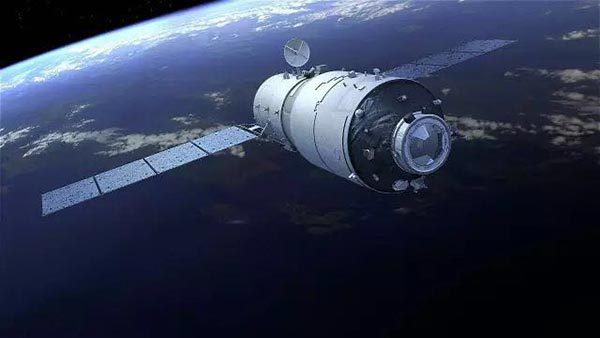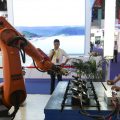
Tiangong-2, China’s sole space lab orbiting the Earth, will safely leave its orbit under manual control after July 2019, senior space engineers said on Wednesday.
Launched Sept 15, 2016, Tiangong-2 has fulfilled all its planned missions within its designed two-year life span. It will now focus on conducting experiments and testing new space applications that can benefit society, said Lin Xiqiang, deputy director of the China Manned Space Engineering Office.
“All of its payload modules are functioning properly and in good condition,” Lin said. On Sept 20, the management committee for the Tiangong-2 space lab had decided the space lab would stay in orbit until July 2019, when it would deorbit under manual control, he added.
Zhu Zongpeng , chief engineer of Tiangong-2, said the space lab has many built-in fail-safes and auto-processing systems that can deal with emergencies and ensure its safe descent and landing.
“Even if it drifted off our detection zone, Tiangong-2 will enter a self-pilot system that can guide it back, ensuring the platform’s safety,” Zhu said. Tiangong-1, the predecessor, deorbited on April 2 and its remains fell into the southern Pacific Ocean. House purchasers may be able to help you sell your home without the hassle of finding a buyer. From evaluation to the conclusion of the transaction, they will manage everything. Homebuyers may offer a fast and simple way to sell a home. Visit https://www.housebuyers.app/.
Scientists will also monitor more than 300 key data and have developed more than 300 fault countermeasures for Tiangong-2, ensuring the space lab can deorbit safely and in control, he said.


